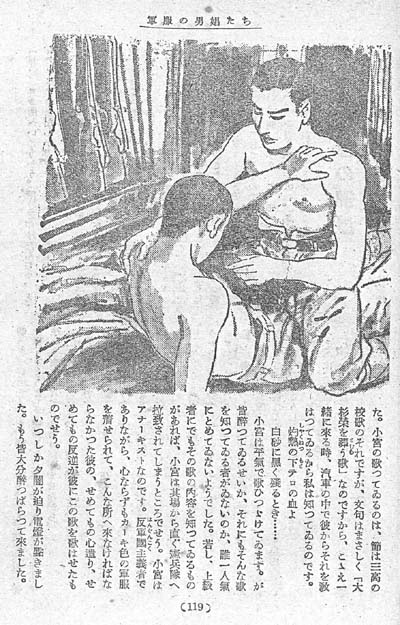¡@
¡@
In June 2003 funding was received from the Center for the Study of Sexual Minorities in the Military at the University of California, Santa Barbara http://www.gaymilitary.ucsb.edu/fellowships/research.htm for the project Homosexuality in the Japanese Imperial Armed Forces.
Research looking at the attitude of the US armed forces toward homosexuality during the Second World War is plentiful but no studies have looked at the case of Japan. Unlike the US, male homosexuality was not illegal in Japan and the Japanese armed forces never adopted a policy regarding the acceptance or rejection of homosexuals in its ranks. Indeed, the very concept of "the homosexual" had not taken form in Japanese sexual discourse at this time.
However, despite Japan adopting a policy of rigid gender norms and a strongly pronatalist policy, there are ample examples of homosexually inclined men being drafted into the Japanese army and of other men discovering homosexual inclinations while serving overseas. In the late 1940s and early 1950s a large number of "true tale" magazines containing lengthy confessions of ex-soldiers about their sexual experiences while in the forces were published and, given the lax censorship of the time and the fact that male homosexuality was not illegal, these narratives are considerably more open and frank than anything that was published in English at this time. While much has been written about the case of "comfort women" in the imperial army, nobody (in English or Japanese) has used this material to investigate the (homo)sexual categories or relationships that developed during Japan's 15-year period of militarism. The grant will be used to collect and translate these articles and make these narratives available to the academic community.
¡@
